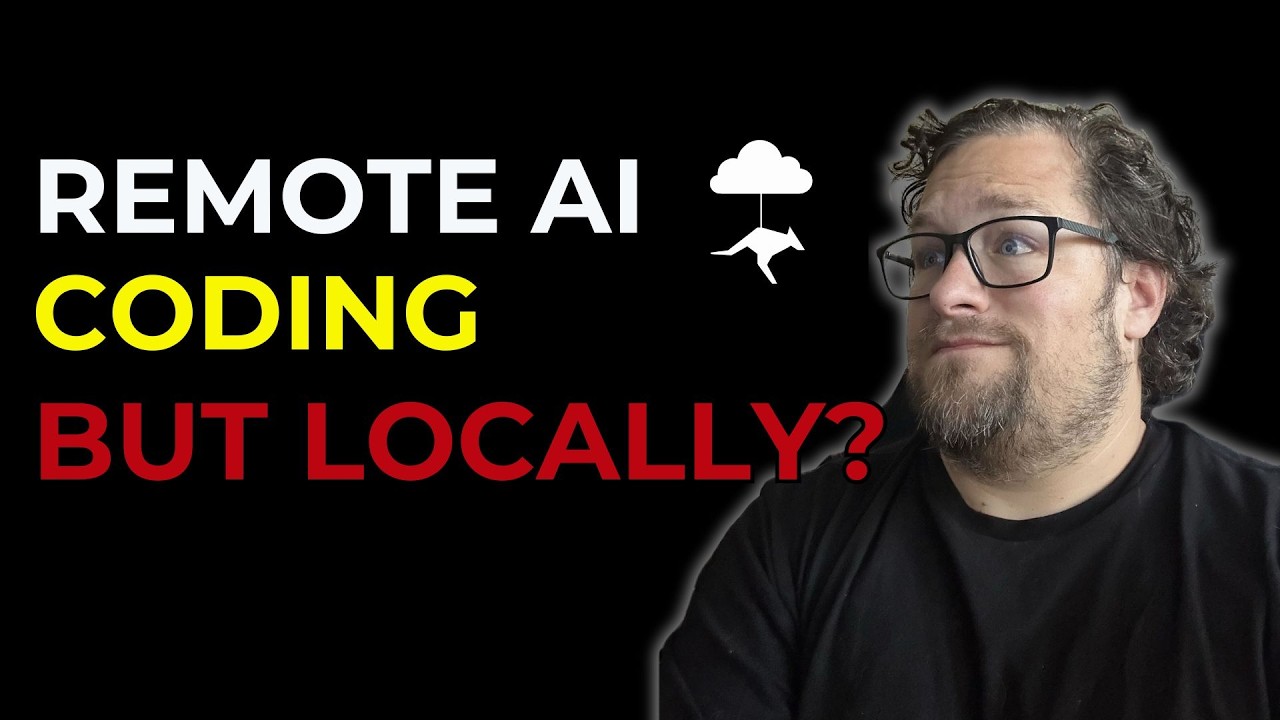The video highlights Rue Code’s innovative platform that enables AI-assisted remote coding agents to run locally on users’ machines, combining cloud orchestration with enhanced security and control over sensitive code and environments. The presenter praises its flexibility and potential while suggesting improvements for greater automation and integration, ultimately endorsing Rue Code as a valuable tool for managing multiple coding environments securely and efficiently.
The video showcases an innovative approach to AI-assisted coding through a platform called Rue Code, which enables remote coding agents to run locally on a user’s own infrastructure. The presenter demonstrates running multiple instances of VS Code, controlled remotely via Rue Code’s orchestrator called Rumote. This setup allows users to manage several coding environments simultaneously from the cloud while keeping the actual code and environment on their own machines. The presenter highlights the convenience of this system, especially with features like auto-approval to streamline task execution across multiple IDEs.
A significant advantage of Rue Code’s solution is its focus on security and control. Unlike many existing AI coding tools that require syncing entire GitHub repositories to cloud-based Docker containers—raising concerns about exposing sensitive environment variables and private credentials—Rue Code keeps everything local. This approach mitigates risks associated with granting broad permissions to third-party services and protects sensitive data such as database credentials and API keys. The presenter emphasizes how this local control addresses a major concern he had with other remote agent solutions.
The video also delves into the presenter’s personal experimentation with remote agents, including a custom-built AI task board that automates coding tasks by pulling tickets, cloning repositories, installing dependencies, and pushing feature branches. This DIY approach underscores the flexibility and power of running AI coding agents locally, allowing for tailored workflows and integrations with task management systems. The presenter appreciates the CLI-based orchestration, which enables easy switching between different AI models and agents, enhancing productivity and customization.
Despite the enthusiasm, the presenter identifies areas for improvement in Rue Code’s current implementation. He suggests adding a “YOLO Dangerous Mode” for fully autonomous task execution without manual approvals, which would enable queuing multiple tasks for uninterrupted processing. Additionally, he calls for better integration with task boards or APIs to automate job dispatching and more granular control over which IDEs or repositories are active. These enhancements would make the platform more versatile and user-friendly, especially for teams looking to scale AI-assisted development workflows.
In conclusion, the presenter expresses strong support for Rue Code’s vision and its potential to revolutionize AI-assisted programming by combining cloud orchestration with local execution. He values the security benefits and the ability to maintain control over sensitive code and environments. While acknowledging the subscription cost, he believes the platform offers significant value, particularly for users managing multiple coding environments or seeking advanced automation. The video ends with an invitation for viewers to share their thoughts and a positive outlook on the future of remote coding agents running locally.
